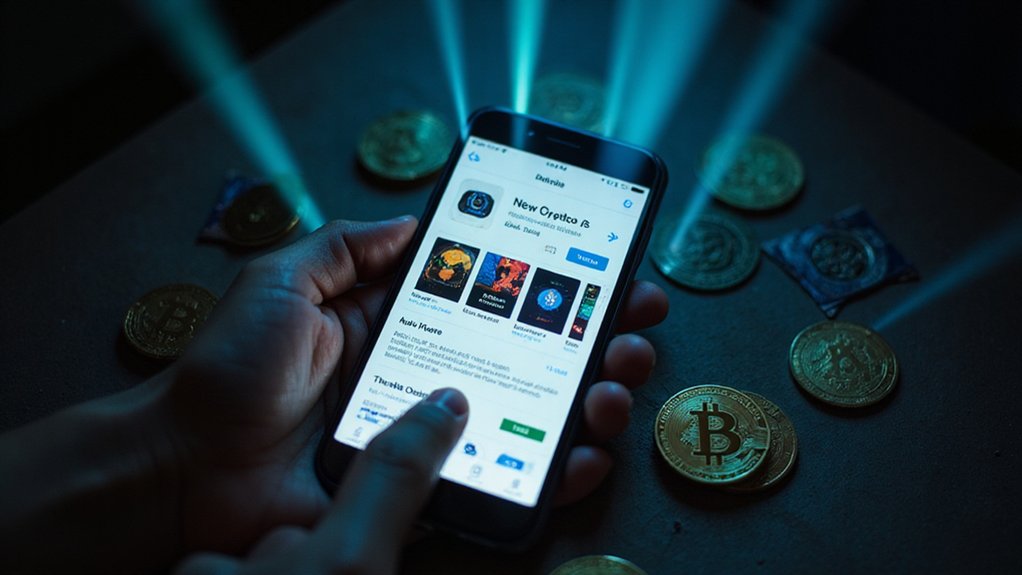In a tectonic shift that crypto enthusiasts have long awaited, Apple has finally acquiesced to external pressure by revamping its notoriously rigid App Store policies for cryptocurrency and NFT applications.
Following a consequential U.S. court ruling—the culmination of Epic Games’ protracted litigation—the tech behemoth now permits apps to include external links for crypto payments and NFT purchases, effectively circumventing the company’s infamous 30% commission structure.
The policy amendments, which critics note contain “passive aggressive language,” represent a grudging concession rather than an ideological embrace of decentralized finance.
Developers can now integrate external payment systems without special entitlements, while users can transact through third-party NFT marketplaces unfettered by Apple’s fee apparatus.
This liberation from the App Store’s commission structure has prompted Alex Masmej to declare the changes “absolutely huge for crypto,” while Web3 analysts foresee a bullish trajectory for mobile crypto gaming experiences.
This represents a significant opportunity for DApp developers to build applications that leverage smart contracts for trustless transactions while maintaining user autonomy.
Not all crypto activities receive Cupertino’s blessing, however.
The updated guidelines explicitly prohibit apps that incentivize users with token rewards for completing tasks, and maintain steadfast opposition to initial coin offerings and on-device mining operations.
These nuanced restrictions illustrate Apple’s reluctance to fully relinquish control over its ecosystem’s monetary flows.
The ramifications for the broader tech landscape are substantial.
Epic Games’ planned return of Fortnite to the App Store signals that even the most entrenched tech giants must eventually yield to market and legal pressures.
For consumers, the new framework promises reduced transaction costs, cross-platform NFT ownership, and unfettered access to decentralized applications without Apple’s intermediation.
Judge Yvonne Gonzalez Rogers specifically ordered that Apple can no longer block or monitor off-platform crypto transactions in iOS apps.
This change comes after Apple strongly disagreed with the court decision but ultimately decided to comply with the order allowing external links.
Industry observers anticipate a surge in mobile-first NFT applications and accelerated Web3 adoption on iOS devices, contingent upon Apple extending this no-fee framework globally.
While compliance requirements for KYC/AML protocols remain intact, this policy pivot nonetheless constitutes a watershed moment in mainstream cryptocurrency adoption—one that may compel other tech gatekeepers to reconsider their own crypto restrictions.









